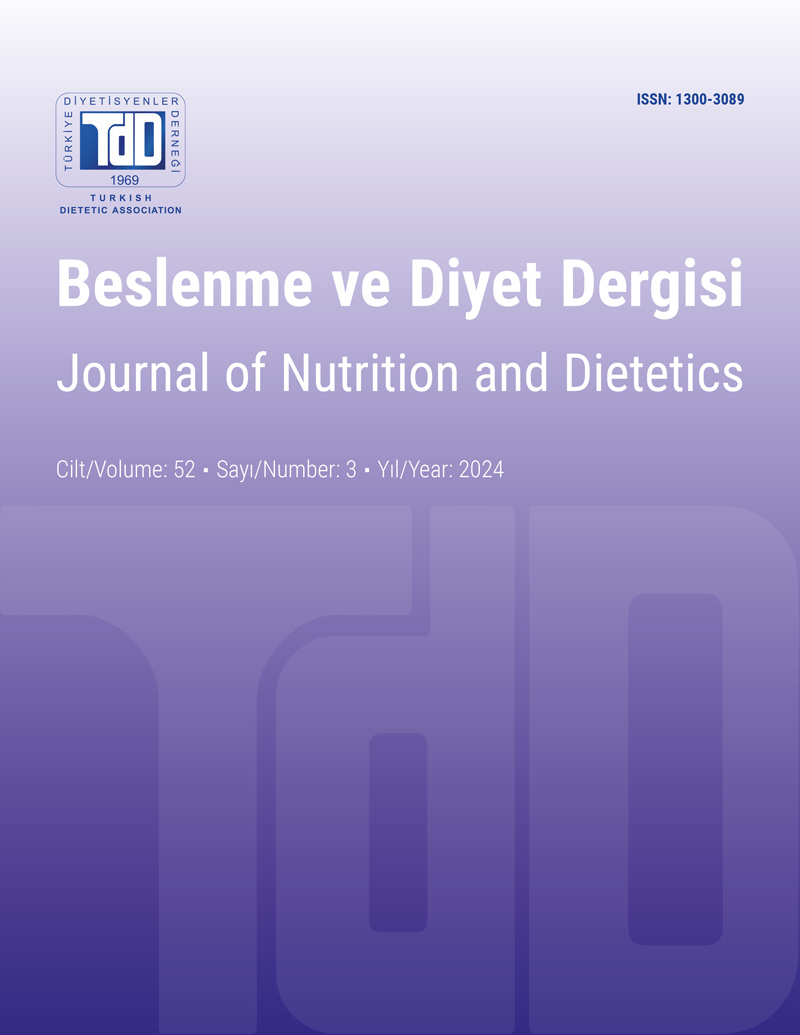Adequacy of Energy and Protein Intake and Related Factors in Patients Receiving Nutrition Support Therapy
DOI:
https://doi.org/10.33076/2024.BDD.1901Keywords:
Energy intake, enteral and parenteral nutrition, protein intake, medical nutrition therapyAbstract
Aim: The aim of this study was to investigate the levels of energy and protein intakes of patients receiving nutritional support therapy and the factors associated with these levels.
Subjects and Method: This retrospective study included 454 adult patients who were referred to the nutrition support team due to high nutritional risk. The daily energy and protein intakes of the patients with oral nutrition were calculated by recording the portions determined by the patients and their relatives on the food consumption form using the food plate visuals. Daily energy and protein intake from oral, enteral and parenteral nutrition was considered adequate intake if it provided 75% of the estimated daily energy and protein requirements.
Results: 57.7% of the patients were male, 63.7% were admitted to hospital for oncological diseases and 73.3% had at least one chronic disease. Energy intake was inadequate in 59.1% and protein intake was inadequate in 52.8% of the patients. A statistically significant association was found between the adequacy of daily energy intake and the primary diagnosis, chronic disease status, admission to the intensive care unit in the previous six months and Nutritional Risk Score (NRS-2002) (p<0.05). A statistically significant association was found between age, primary diagnosis, body mass index and NRS-2002 score and daily adequate protein intake (p<0.05).
Conclusion: A significant proportion of hospitalized patients do not achieve target energy and protein intakes. Determining the factors associated with achieving the targeted energy and protein levels in medical nutrition and nutritional support therapy is important for optimal medical nutrition therapy. In addition, there is a need for future studies on the barriers to the implementation of planned medical nutrition therapy and the effectiveness of interventions developed for these barriers.

